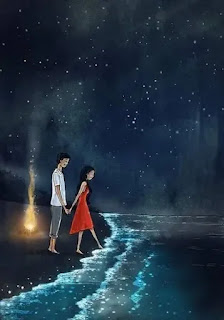The Last Ride Together as a piece of dramatic monologue
The dramatic monologue is a kind of soliloquy current revealing speeches which pressure circumstances forces relief underlying temperament speaker. situation expression speaker’s thoughts feelings moment experience. while soliloquy person concerned speaks argues himself, dramatic monologue speaker speaks addresses arguments another person who generally keeps silent, presence provokes speaker make utterances through which secret unveiled. Patrick Murray Literary Criticism Observes, dramatic monologue brief which central character allowed becoming dominant everything through eyes, play mere episode career. In other words, dramatic monologue depicts a situation which made manifest through circumstances. main stuff dramatic lyric personality speaker nature circumstances which speak. Patrick Murray further points monologue arises only partly response situation; seen occasion, triumphs, fears. Princeton Encyclopedia Poetry Alex Preminger defines ‘monologue’ prolonged speech individual”. short, dramatic monologue soul’s history episode hour. Hudson observes ideal dramatic monologue defined faithful self-portrayal without ulterior purpose personality speaker. Browning spite unquenchable appetency drama, invent the form, made greatest most original contribution to English poetry. invent form; made peculiarly own.
Prof. Herford observed Browning’s dramatic genius found most natural effective outlet wealth implicit drama, which concentrated, salient moments, tensed with memory hope. some poems Browning yields to his passion for philosophizing or moralizing as in Rabbi Ben Ezra. In The Last Ride Together Browning gives scope to his philosophizing yet the intensity of the moment is not a little lessened thereby. In this poem there is no preparation, no working up to the crisis, the monologue abruptly opens on some tempest of the soul: “I said- Then, Dearest……….’
“Fixed me a breathing-while or two
With life or death in the balance,”
For the moment he seeks the favor of one last ride with her and counts it a blessing that his prayer has been granted. Now he least bothers whether she might have loved him more and liked him less. To this spiritually ecstatic frame of mind, the world may end, but he and his beloved would pass into eternity riding side by side. This brings out a dramatic as well as electrifying change in him. Also, it pumps in him a surge of hope. He feels this a precious gift for “Who knows but the world may end to-get the Last Ride Together is predominantly argumentative and analytical. The rejected lover argues.
“Fail I alone, in words and deeds”?
Why all men strive and who succeeds?”
For a moment the beloved leans on his breast and it is such movements that make Browning’s monologues truly dramatic. The lover trying to reconcile himself to his lot sees the gulf between object and desire
“The petty done, the undone vast” as a problem for all. Man’s achievement rarely matches his ambition:
“What hand and brain went ever paired?
What heart alike conceived and dared?
What act proved all its thought had been?
What will but felt the fleshly screen?
Compared with the achievements of others, his riding is no a mean feat. In fact, his riding is even better in comparison with what the poet, the musician, the sculptor are able to achieve. It has the warmth of life and proximity to the ideal (the object of love) which their creations fail to achieve.
The speaker is further characterized by his conviction that most failure is most success”. And we know that this was a belief to which Browning attaches a personal value. It is better than the love of the rider is not consummated in this world: “Earth being so good, would heaven seem best”. Love is set up as an immortal object to be pursued even after death. For the moment, however, there is the bliss of riding with her, which seems to crown with glory the moment of failure. For the moment he regards the endless ride with her as his destined paradise. In fine, it veritably triumphs over the agony of frustration in love. He refuses t visualize any future in his glorious possession of the “Supreme moment” of earth.
To conclude, the dramatic monologue becomes especially enlivening for poetry in any literature tending to neglect the vital relation of poetry to the spoken voice. With Browning as a pathfinder, it has assumed a great value for English verse of the 20th century, as this drastically divorces from the comparatively bookish diction of Tennyson and Swinburne. Eliot rightly comments, “When we listen to a play by Shakespeare, we listen not to Shakespeare but to his characters; when we read a dramatic monologue by Browning, we cannot suppose that we are listening to any other voice than that of Browning himself”. It is also interesting to note that Browning’s use of dramatic monologues for the in-depth psychological study of the character anticipated the interior monologue of such stream of consciousness novelists of the 20th century as Joyce, Virginia Woolf, etc. and Browning in this sense may rightly be placed in relation with the mighty moderns.
